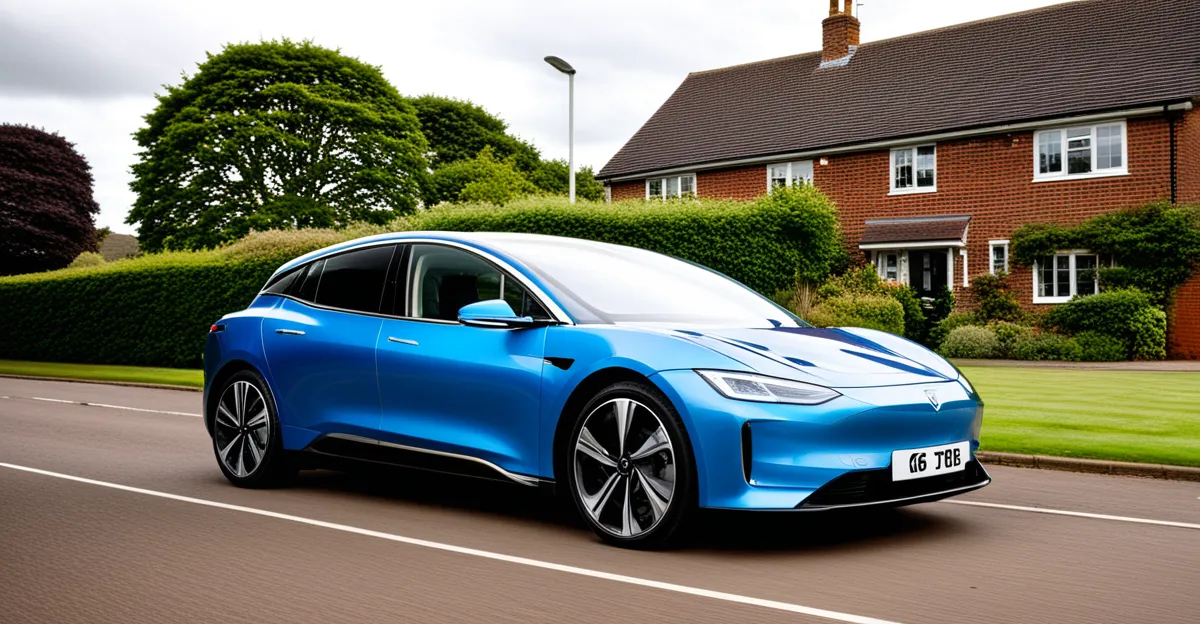Electric Vehicle Growth Trends in the UK
The electric vehicle adoption UK has accelerated rapidly, with EV market statistics showing a significant increase in both sales and overall market share. In recent years, electric vehicles have gone from niche options to mainstream contenders on UK roads. For example, the proportion of new car sales attributed to electric vehicles has consistently climbed, reflecting growing consumer interest and regulatory encouragement.
Key drivers behind this growth include generous policy incentives such as grants and tax breaks, which have lowered upfront costs for buyers. Additionally, rising environmental awareness and improvements in EV technology, like enhanced battery ranges, have boosted consumer demand. These factors combined have propelled the UK’s EV landscape forward quicker than many anticipated.
Have you seen this : How Does the UK Automotive Industry Contribute to Sustainability Goals?
Currently, thousands of electric vehicles populate the UK’s roads, with projections forecasting millions more in the coming decade. Market analysts highlight that the velocity of growth in the EV market statistics signals a fundamental shift in the UK automotive industry trends, moving toward zero-emission transportation. This surge challenges manufacturers and infrastructure providers to keep pace, ensuring that the expanding fleet is supported efficiently and sustainably.
Effects on Traditional Car Manufacturing
The impact on car manufacturing from increasing electric vehicle adoption UK is profound. As the UK automotive industry trends shift, manufacturers are retooling to focus on electric drivetrains rather than conventional engines. This transition to EVs requires significant changes in production lines, with many factories converting their assembly processes to accommodate battery packs and electric motors instead of internal combustion components.
Topic to read : How Will Electric Vehicles Transform the UK Automotive Market?
Established automakers in the UK are adopting diverse strategies to stay competitive. Some are investing in new EV platforms, while others form partnerships to share technology and reduce development risks. These adaptations support innovation but also challenge traditional supply chains and workforce skills. The transition to EVs forces manufacturers not only to change their vehicle portfolios but also to rethink design, sourcing, and lifecycle management.
Crucially, this shift fosters competitiveness by encouraging innovation in battery efficiency, lightweight design, and smart vehicle connectivity. While some companies face difficulties adapting quickly, the overall trajectory within the UK automotive industry trends points toward a more sustainable, technology-driven future. The evolving car manufacturing landscape reflects a broader industrial transformation aiming to align with environmental targets and changing consumer expectations tied to EV growth in the UK.
Changes in Supply Chains and Employment
The rise of electric vehicle adoption UK is reshaping automotive supply chain changes profoundly. Traditional supply chains focused on combustion engine parts are now giving way to new requirements centered on batteries, electric motors, and advanced electronics. This shift demands sourcing rare materials like lithium and cobalt, leading manufacturers and suppliers to establish new partnerships and logistics frameworks.
Regarding the EV impact on jobs, the transition creates a complex employment landscape. While jobs related to conventional engine production decline, new roles emerge in battery manufacturing, software, and EV maintenance. This transformation necessitates substantial workforce retraining programs to equip employees with skills relevant to electric drivetrains and digital systems.
Challenges arise as some skill sets become obsolete, requiring coordinated efforts between automakers, suppliers, and government bodies to manage this shift sustainably. Opportunities also exist in expanding sectors like battery recycling and charging infrastructure services, reflecting evolving workforce transformation needs.
Overall, the automotive supply chain changes linked to EV growth demand adaptability. Training and reskilling strategies are crucial to mitigate job losses and harness new opportunities, ensuring the UK workforce remains agile amid rapid industry transformation driven by accelerating electric vehicle adoption.
Government Policies and Regulatory Framework
Government policy electric vehicles in the UK plays a pivotal role in driving electric vehicle adoption UK. The UK government has set ambitious UK EV regulations, including phased bans on new petrol and diesel car sales starting in 2030, aiming to accelerate the shift toward zero-emission vehicles. These mandates create clear regulatory certainty, incentivizing manufacturers to prioritize EV production and innovation.
Support programs underpin these regulations, offering grants and tax incentives that reduce the upfront cost of electric vehicles, directly influencing consumer decisions and boosting market uptake. Such government policy electric vehicles initiatives also fund charging infrastructure expansion, easing access concerns and facilitating wider adoption.
Manufacturers respond to UK EV regulations by restructuring portfolios to comply with increasingly strict emissions standards. This regulatory framework encourages investments in technologies enhancing battery efficiency and vehicle connectivity, aligning with broader UK automotive industry trends focused on sustainability and digital integration.
In summary, government policies drive not only compliance but also innovation and market dynamics in the EV sector. Through targeted subsidies, mandates, and infrastructure support, the regulatory framework creates a fertile environment for the electric vehicle adoption UK to continue its rapid growth, reshaping the entire automotive landscape.
Charging Infrastructure and Industry Investment
Expanding EV charging infrastructure UK is essential to sustain growing electric vehicle adoption UK. The availability of reliable, accessible charging points directly influences consumer confidence and daily EV usability, mitigating range anxiety concerns. Public and private sectors are investing heavily in installing fast chargers across cities, highways, and rural areas, aiming to create a comprehensive network that supports increasing EV numbers.
Investment in electric vehicles extends beyond vehicles themselves to include technology development and charging solutions. Automotive companies are allocating significant resources to improve charger speed, compatibility, and integration with renewable energy systems. Collaborations between manufacturers, energy providers, and local governments foster innovation and efficient deployment of charging infrastructure UK.
Strategic partnerships also accelerate infrastructure rollouts. Industry players pool expertise and funding to overcome technical and logistical challenges, facilitating scalable solutions adaptable to urban and suburban environments. This collaborative approach ensures that the UK automotive industry trends align with consumer expectations and government goals, addressing one of the critical enablers for widespread EV adoption UK—seamless access to charging networks.

